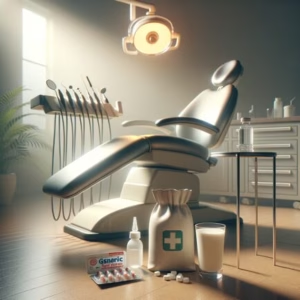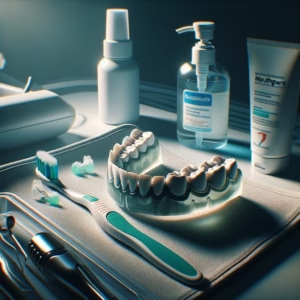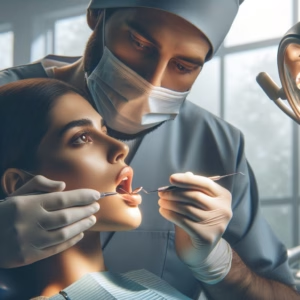Understanding Common Dental Emergencies
Common Dental Emergencies
Dental emergencies can arise suddenly and often require prompt attention to prevent further complications. Understanding the most common types can help adults navigate these situations effectively.
- Toothache: A toothache is a persistent pain in or around a tooth, often caused by decay, infection, or injury. It can range from mild discomfort to severe, throbbing pain and may be accompanied by swelling, fever, or a bad taste in the mouth. Immediate care is crucial to identify the underlying cause and relieve pain.
- Cracked Tooth: A cracked tooth can occur from injury, grinding, or biting hard objects. Symptoms may include pain when chewing, sensitivity to temperature changes, or visible cracks. Depending on the severity, treatment can vary from bonding or a crown to root canal therapy.
- Avulsed Tooth: An avulsed tooth refers to a tooth that has been completely knocked out of its socket, often due to trauma or injury. Preserve the tooth by holding it by the crown (not the root) and rinsing it gently if dirty. Immediate re-implantation by a dental professional increases the chances of saving the tooth.
- Dental Abscess: A dental abscess is a painful infection at the root of a tooth or between the gum and a tooth. It often presents as swelling, pain, and fever. Prompt treatment is essential to drain the abscess and eliminate the infection.
- Lost Filling or Crown: Losing a filling or crown can expose the tooth to further decay and sensitivity. It’s important to see a dentist as soon as possible to prevent complications and restore the tooth’s integrity.
Understanding these dental emergencies can help individuals seek timely care and minimize long-term damage.
First Aid for Dental Injuries
In the event of a dental emergency, certain first aid measures can be taken at home to alleviate pain and manage the situation until professional treatment is available.
- Toothache: Rinse your mouth gently with warm salt water to help clean the area and reduce inflammation. Over-the-counter pain relievers such as ibuprofen or acetaminophen can help manage pain. Applying a cold compress to the outside of your cheek may also reduce swelling. Avoid placing heat on the affected area, as it may worsen the pain.
- Cracked Tooth: Rinse your mouth with warm salt water and avoid chewing on that side of the mouth to prevent further damage. If possible, apply a cold compress to alleviate swelling. Over-the-counter pain relief can help manage discomfort until you see a dentist.
- Avulsed Tooth: Immediately attempt to reinsert the tooth into its socket, holding it by the crown. If this isn’t possible, place the tooth in a glass of milk or between your cheek and gums to keep it moist. Rinse your mouth gently with warm salt water to keep the area clean and control any bleeding.
- Dental Abscess: Rinse your mouth with warm salt water to help reduce swelling and pain. Avoid squeezing the abscess, as this can push the infection further. Use over-the-counter pain relievers and apply a cold compress to the outside of the face to minimize swelling.
- Lost Filling or Crown: Rinse your mouth with warm salt water to keep the area clean. If you have the lost filling or crown, you can temporarily reattach it using dental cement available at pharmacies, but avoid using superglue. Pain relief can be managed with over-the-counter medications.
These first aid measures can help provide comfort and minimize complications until you can see a dental professional for appropriate treatment.
Preventive Measures
Taking proactive steps to protect your dental health is vital in reducing the risk of emergencies. Here are some effective preventive measures:
- Wear Mouthguards During Sports: Engaging in sports can expose your teeth to potential injury. Wearing a custom-fitted mouthguard can significantly reduce the risk of dental trauma, including cracked or avulsed teeth, by providing a protective barrier against impact.
- Maintain Oral Hygiene: Consistent oral hygiene practices are essential in preventing dental emergencies. Brush your teeth at least twice a day with fluoride toothpaste, floss daily, and use antibacterial mouthwash to reduce plaque buildup and combat gum disease. Regularly cleaning your teeth helps prevent decay, which can lead to painful emergencies.
- Regular Dental Check-ups: Schedule dental check-ups at least twice a year. These visits allow your dentist to identify early signs of potential problems, such as cavities or gum disease, before they escalate into emergencies. Professional cleanings and examinations are crucial for maintaining optimal oral health.
- Limit Hard Foods and Sugary Snacks: Avoiding hard foods that can crack teeth, such as ice or hard candies, is essential. Additionally, reducing sugar intake can help prevent cavities and tooth decay, which are common culprits behind dental emergencies.
- Stay Hydrated and Avoid Tobacco: Drinking plenty of water helps maintain saliva production, which is vital for oral health. Avoiding tobacco products is also crucial, as they can lead to gum disease and other serious dental issues.
By integrating these preventive measures into your routine, you can significantly minimize the likelihood of dental emergencies and maintain a healthy smile.
Pain Management Techniques
When experiencing dental pain, various techniques and over-the-counter medications can provide immediate relief while awaiting professional help.
- Over-the-Counter Pain Relievers: Non-prescription medications like ibuprofen or acetaminophen can effectively reduce pain and inflammation. Follow the dosage instructions on the packaging and consult a pharmacist if unsure.
- Cold Compress: Applying a cold compress or ice pack to the outside of the cheek near the painful area can help numb the pain and reduce swelling. Use for 15-20 minutes every hour as needed.
- Saltwater Rinse: Gargling with warm saltwater can help clean the affected area, reduce inflammation, and alleviate discomfort. Mix about 1 teaspoon of salt in 8 ounces of warm water and rinse several times a day.
- Clove Oil: Applying a small amount of clove oil directly to the painful tooth can provide temporary relief due to its natural analgesic properties. Use a cotton ball for application.
- Elevation: Keeping your head elevated while resting can help decrease blood flow to the affected area, potentially reducing pain intensity.
By utilizing these techniques, individuals can manage dental pain effectively until professional assistance is available.
When to Seek Emergency Care
Certain indicators should prompt individuals to seek immediate dental care. Recognizing these signs can be crucial for preserving oral health and preventing severe complications.
- Severe Pain: Intense, unmanageable pain that does not subside with over-the-counter pain relievers warrants immediate attention. This level of discomfort often suggests a serious underlying issue, such as an infection or an abscess, that requires professional evaluation.
- Signs of Infection: Symptoms such as swelling in the gums or face, fever, and a foul taste or odor in the mouth may indicate an infection. If you experience any of these symptoms, especially if accompanied by redness or warmth in the affected area, seek dental care urgently.
- Uncontrolled Bleeding: Continuous bleeding from the gums or after a dental injury that does not stop within a few minutes should be treated as an emergency. This could indicate a serious issue requiring immediate intervention to prevent significant blood loss.
- Swelling: Sudden and severe swelling in the mouth, face, or neck can be a sign of a serious infection or other complications. If swelling makes it difficult to breathe or swallow, it is critical to seek emergency care.
- Jaw Pain or Locking: Severe pain or the inability to open or close the jaw can signify a serious dental issue, such as a dislocated jaw or temporomandibular joint (TMJ) disorder. Immediate evaluation is necessary to prevent further complications.
By recognizing these specific indicators, individuals can better understand the urgency of their dental situations and take appropriate action to protect their oral health.





